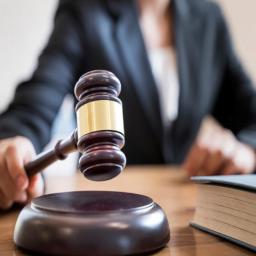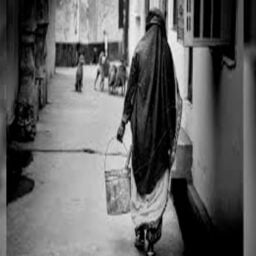INTRODUCTION
The main objective of the Indian legal system is to protect the integrity and rights of the citizens of the country. It is governed by rule of law which ensures the application of law and justice on all individuals irrespective of their gender, caste, position, or rank in society. The constitution of India provides a set of laws that protects the fundamental rights of the citizens of India. Article 21 of the Constitution of India provides for the protection of the right to life and personal liberty.[1] Article 21 is a basic human right that has been recognized by many countries, including the Universal Declaration of Human Rights. Article 3 of the UDHC says “Everyone has the right to life, liberty and security of person.”[2]
Wrongful conviction is a gross violation of human rights. It arises when an innocent is punished for an offence he has not committed. It is a miscarriage of justice done by the Indian judiciary and the government administrators. Such convictions can have a detrimental effect on a person’s mental health in the long- run. The victims may lose their desire to live and commit suicide. According to the National Crime Records Bureau, the average suicide rate between 2015-2019 is 23.6 per 1,00,000 inmates.[3] Most victims after their exoneration face a series of mental health issues, most commonly Post-Traumatic Stress Disorder. They face loss of life, earnings, education, shame, guilt and a sense of abandonment by God and the State. According to the New England Innocence Project, wrongful conviction is a product of a series of maladministration and negligence by the concerned authorities. “It includes misidentification by eyewitnesses, invalidated forensic science, media trial, political corruption, false confessions, police and prosecutorial misrule, and poor defence by the counsels.” India currently does not have any system in place which provides a remedy for wrongful convictions. It’s dependent on court rulings to set precedent for compensating the victims of wrongful convictions. The government must ensure such instances do not occur and that a precautionary mechanism is created to avoid such wrongful convictions.
WRONGFUL CONVICTIONS IN INDIA
Conviction of an innocent is a breach of Articles 21 and 22 under the constitution of India. Article 21 states “No person shall be deprived of his life or personal liberty except according to procedure established by law”[4] and Article 22 provides for safeguards against arbitrary arrests and preventive detention”[5]. An aggrieved person can claim remedy by filing a writ petition in High Court and Supreme Court under Article 226 and Article 32 respectively. However, there is no separate legislation that provides a remedy for wrongful convictions in India. The constitution does not provide any article which explicitly provides a remedy for Wrongful conviction.
Article 4(2) of the International Covenant on Civil and Political Rights,
“When a person has been convicted of a criminal offence and when subsequently his conviction has been reversed or the person who has suffered punishment as a result of such conviction shall be compensated according to law unless it is proved that the non-disclosure of the unknown fact in time is wholly or partly attributable to him.”[6] Many states have ratified this document and have incorporated this provision into their legal system. But India remains to adopt and implement the law. However, in many instances, the Supreme Court has undertaken to protect the fundamental rights of people in the absence of legislation or a constitutional provision. In the case of Bhim Singh V. State of Jammu and Kashmir[7], An MLA was unlawfully arrested and detained by the police to prevent him from attending a legislative assembly session. This was found to violate his fundamental right to life and personal liberty under Article 21 of the Constitution of India. Accordingly, The Supreme Court awarded him as compensation Rs. 50,000 for the loss he suffered.
The Indian Courts have created three forms of remedies for the victims of wrongful convictions. These include:
- Public Law Remedy
- Private Law Remedy
- Criminal Law Remedy
PUBLIC LAW REMEDY
The constitution of India has incorporated public law remedy for misconduct in the prosecution of accused into its ambit via Articles 21 and 22. The victims can avail remedy by filing writ petitions under Article 226 and Article 32 to the High Court and Supreme Court respectively. Earlier compensation was not allotted to victims of arbitrary arrests and detention. The Higher courts were allowed to quash such orders on an appeal, but not compensate the victims. However, after the case of Maneka Gandhi v. Union of India[8], the concept of Article 21 was broadened and was given a dynamic interpretation. After this case, the courts began compensating the victims of wrongful convictions.
In the case of Rudal Sah v. the State of Bihar[9], In this case, the petitioner filed a writ petition under section 32 for the violation of his right to life and personal liberty and unlawful arrest and detention under Article 21 and 22 respectively. The Supreme Court held that the petitioner who was unlawfully detained for 14 years after his acquittal will be awarded compensation. When a public official commits misconduct that leads to a wrongful conviction, the state remains to be vicariously liable. This was pronounced in the case of Saheli v. Commissioner of police Delhi[10], where the Supreme Court ordered the Delhi administration to compensate the victim for police atrocities, leading to the death of a child. In the case of Ram Lakhan Singh v. State of Uttar Pradesh[11], Wrongful prosecution violates a person’s fundamental rights and therefore must compensate the victims for their rehabilitation. Thus, in many cases, the Supreme Court has awarded compensation to victims of wrongful prosecution. However, the lack of proper legislation poses a hindrance in the pathway to justice.
PRIVATE LAWREMEDY
A Private law remedy is given to victims for offences done by state officials or authorities. Here the state, in a civil suit has a liability to pay monetary compensation to victims for the acts of public officials. For instance, in the case of State of Bihar v. Rameshwar Prasad Baidya & Anr.[12], the state officials harassed the victims by instituting criminal proceedings against them. The court held that the victims are to be paid damages by the state for malicious prosecution. Here the remedies given under public law remedy are heavier than that of private law remedy mostly because in the former there is a violation of fundamental rights. Also, damages given as private law remedies are dependent on the privacy laws and compensation given as public law remedies like exemplary damages[13].
CRIMINAL LAW REMEDY
The criminal law remedy for wrongful convictions has been given under the Indian Penal Code. The Indian penal code provides for substantial laws which penalize an individual for crimes committed by him. It also provides for offences committed by public officials and prescribes the punishment for such offences. The sections under chapter IX and chapter of XI of the Indian Penal Code provide for ‘offences by or relating to public offences’ and ‘of false evidence and offence against public justice’ respectively. It talks about offences committed by the police, prosecutors and investigating agencies in investigations, trials, inquiry and criminal proceedings.[14]
CONCLUSION
Being wrongfully convicted for a crime is the worst-case scenario one can imagine being in. Acquitting victims of wrongful conviction does not redeem the State from its liability. There is a wide range of challenges that the victims face after their exoneration. They require systematic rehabilitation to reintegrate back into society. However, India has no legislation for compensating the victims of wrongful convictions and therefore has no statutory obligation to compensate. There is also no uniform mechanism for awarding compensation to victims. The amount payable is left to the court’s discretion. Therefore, it is the State’s responsibility to provide for a comprehensive legislative framework that protects and compensates the victims from wrongful convictions.
Author(s) Name: Anagha Sajeevan (KLE Society of Law College, Karnataka State Law University, Bangalore)
References:
[1] The Constitution of India, Art 21
[2] The Universal Declaration of Human Rights, Art 3
[3] Guru S, Gowda ‘Suicide in Indian Prisons’ (Lancelet Psychiatry, August 2021) <https://www.thelancet.com/journals/lanpsy/article/PIIS2215-0366(21)00233-9/fulltext> accessed on 26 January 2022
[4] The Constitution of India, Art 21
[5] The Constitution of India, Art 22
[6] International Covenant of Civil and Political rights, Article 14(6).
[7] Bhim Singh v State of Jammu and Kashmir, [1985] 4 SCC 677
[8] Maneka Gandhi v Union of India ]1978] SCR (2) 621
[9] Rudal Sah v State of Bihar [1983] SCR (3) 508
[10] Saheli v Commissioner of Police, Delhi [1989] SCR 488
[11] Ram Lakhan Singh v State of Uttar Pradesh [1978] SCR (1) 125
[12] Bihar v Rameshwar Prasad Baidya & Anr 1981 (29) BLJR 138
[13] The Law Commission of India, Report no. 277
[14] Ibid















